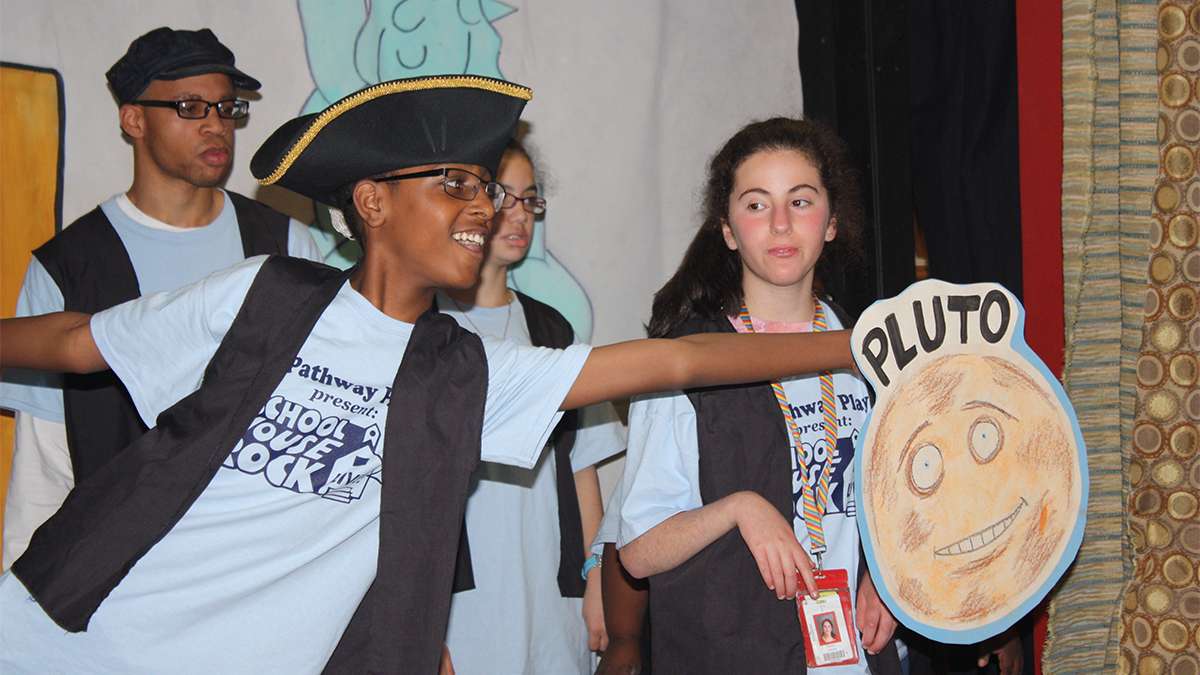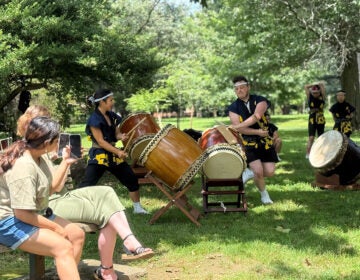People’s Light finds play’s the thing to benefit kids on autism spectrum
After years of running theater programs for children on the autism spectrum, People’s Light and Theatre in Malvern, Pennsylvania, now has scientific proof that it helps.
The notion that kids with autism benefit from theater programs has long been anecdotally accepted, but rarely backed up with hard numbers. The few studies that have been done to quantify that belief have normally focused on kids playing theater games in a clinical setting.
At People’s Light and Theater, teenagers on the autism spectrum are able to produce a real stage production, with a real audience.
It makes a difference.
“One of the things the students have to do is work together as an ensemble to build a final product,” said Pete Pryor, a resident actor at People’s Light and artist in residence at Pathway School, a special needs institute. “There’s a deadline, there’s a period where the work has to be done.”
“It’s joyful and important work,” said People’s Light resident director Samantha Reading. “I think they felt important that they were making something and giving back to their community. And they were applauded at the end of it, so it didn’t get tedious.”
Reading believed putting on a real play was not just more fun, but more beneficial. To prove it with quantifiable data she turned to her mother, Suzanne Reading, a speech pathologist at Butler University specializing in children with developmental problems. She and her husband, James Reading, a fellow speech pathologist, developed a rating system to rank certain social behaviors
The Ratings of Social Behaviors is a test for 24 social behaviors in four subcategories: language use and conversation; social responsiveness; perspective of others; and participation and cooperation.
The test was administered to an active group and a control group, both before and after the 10-week theater program in 2011, in which teenagers on the spectrum produced their own version of “The Adventures of Tom Sawyer,” performing it for audiences four times.
The study, published in the Journal of Speech Pathology and Therapy, found kids with autism who have problems recognizing multiple points of view, or communicating with their peers, or participating in group activities were helped by acting in character and collaborating on a stage production.
One of the differences between this study and most previous studies is that says the kids were not focused on improving their social skills; first and foremost they wanted to put on a good play.
“Gains were made even though the specific behaviors were not targeted directly. Rather, they were a result of being involved in theater,” said Suzanne Reading, who hopes her rating system will be a model for other researchers looking into autism behaviors.
The study also shows that kids with autism maintained their social improvements outside of the theater environment. In a subsequent study not yet published, Reading says those improvements were retained by the subjects a year after the theater program ended.
WHYY is your source for fact-based, in-depth journalism and information. As a nonprofit organization, we rely on financial support from readers like you. Please give today.









